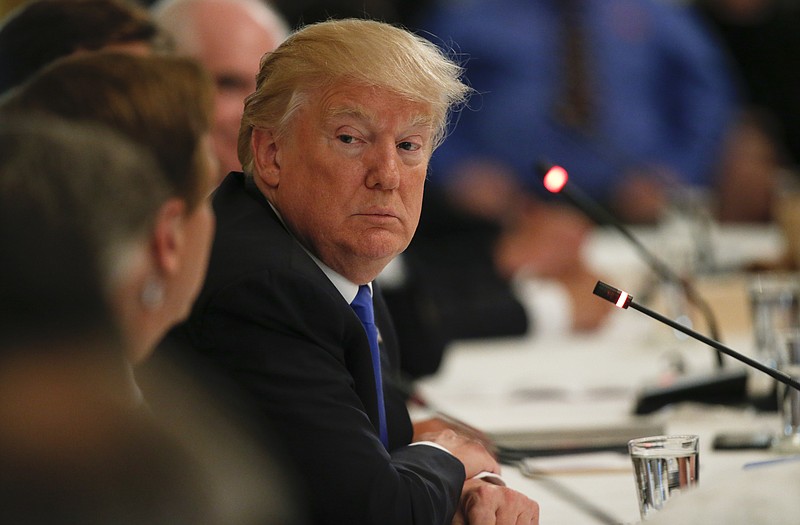WASHINGTON - In December 2015, Steve Bannon, now the president's chief strategist, told Donald Trump, "You're a student of military history." Flattery will get you everywhere with Trump, but that was a stretch.
In a recent interview with this newspaper, we learn from Trump the reason for the collapse of Napoleon Bonaparte's Russian campaign of 1812: "And his one problem is he didn't go to Russia that night because he had extracurricular activities, and they froze to death."
Now, Napoleon was not averse to the extracurricular, but the calamitous six-month Russian campaign, with the loss of close to half a million men, was scarcely the moment. The general had other things on his mind, like the battle of Borodino, the Russian army's scorched-earth tactics, and a freezing retreat from Moscow without provisions.
Napoleon had other talents, Trump explains. He quotes President Emmanuel Macron of France as saying that Napoleon "designed Paris. The street grid, the way they work, you know, the spokes." This appears to be a reference to Haussmann's grid of broad avenues cut through crowded airless neighborhoods under Napoleon III, who was Bonaparte's nephew.
Close, but no cigar.
Evidently on a historical roll, Trump fast-forwards to Hitler's invasion of Russia 129 years later. "Same thing happened to Hitler," Trump declares. "Not for that reason, though." With a 1,000-year Reich to build, there's apparently limited time for the extracurricular.
History, for Trump, is principally a vast murky backdrop against which to declare his every act and utterance the greatest since time began. That is what history's for.
The president made a speech in Poland this month and, he suggested, "Enemies of mine are saying it was the greatest speech ever made on foreign soil by a president." (His friends are presumably saying it was the greatest in the history of the universe.)
Greatest ever? Well, there was President John F. Kennedy's speech in Berlin in 1963 when he declared in the then-divided city: "All free men, wherever they may live, are citizens of Berlin, and therefore, as a free man, I take pride in the words, Ich bin ein Berliner."
Kennedy also said: "Freedom is indivisible, and when one man is enslaved, all are not free. When all are free, then we can look forward to that day when this city will be joined as one and this country and this great continent of Europe in a peaceful and hopeful globe."
Such ideas in the mouth of a president, like Trump, who delights in the company of autocrats, would be little short of grotesque. There is a difference between knowledge of history - the sense of the sweep of time and the power of the American idea that enabled Kennedy to make that prediction about a unified Berlin and a unified European continent - and mouthing about history.
Trump, of course, has also addressed U.S. history, suggesting that Andrew Jackson was alive at the time of the Civil War (he'd been dead for 16 years). Turning to Asia, he declared that "Korea actually used to be a part of China," a wild distortion that infuriated an ally, South Korea.
Far from a student of history, Trump is an ahistorical president at a time of historical geostrategic shifts. This is a problem. He cannot gauge our times because his only gauge is his own self-exaltation.
As William Burns, the president of the Carnegie Endowment for International Peace and a former deputy secretary of state, said in a speech in May: "A nasty brew of mercantilism, unilateralism and unreconstructed nationalism" has bubbled to the surface under Trump.
Napoleon and Hitler stumbled into disastrous campaigns in Russia. Before the United States stumbles into a disastrous war with Iran, the president might read some history: about the CIA-assisted coup of 1953 that deposed Prime Minister Mohammed Mossadegh, about the brutal Savak secret police of the U.S.-backed shah, about Western support for Saddam Hussein and his use of chemical weapons in the Iran-Iraq war, about the U.S. shooting-down of an Iran Air civilian flight with the loss of 290 lives.
History is no joke. It's on the curriculum because it is only through it that the psyches of other nations can be understood and wars averted.
The New York Times
